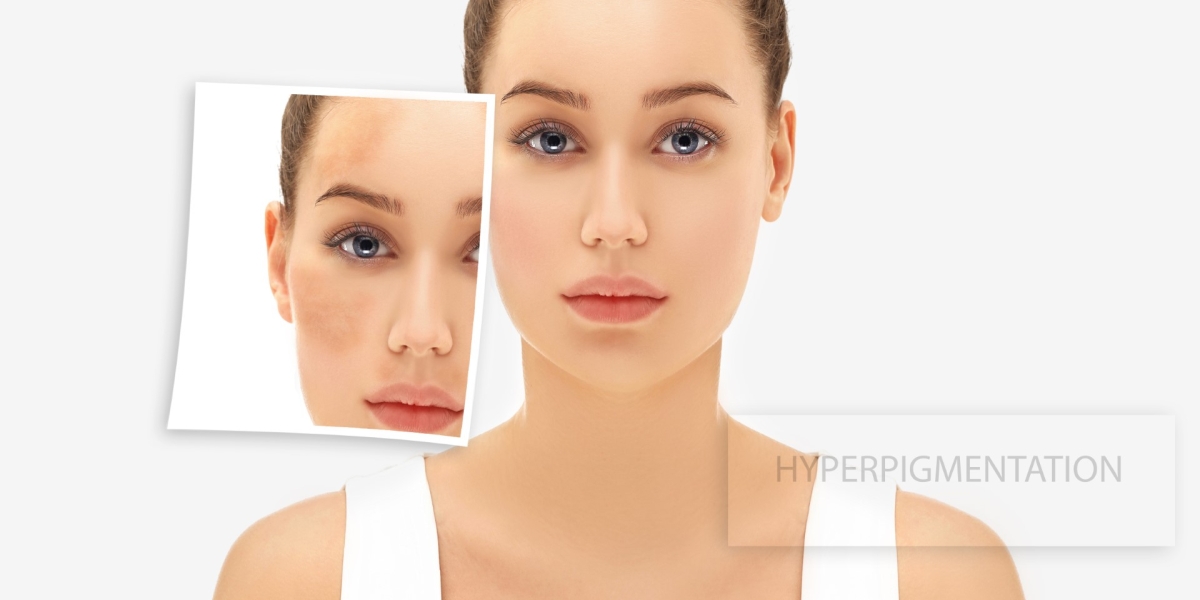
Hyperpigmentation is a common skin condition that causes patches of skin to become darker than the surrounding skin. It can be caused by a variety of factors, including sun exposure, hormonal changes, and certain medical conditions. While hyperpigmentation is usually harmless, some people may choose to treat it for cosmetic reasons.
Causes of Hyperpigmentation
The most common cause of hyperpigmentation is sun exposure. When the skin is exposed to the sun, it produces melanin, a pigment that gives skin its color. Melanin helps to protect the skin from the sun's harmful UV rays. However, too much sun exposure can cause melanin to be produced in excess, leading to hyperpigmentation.
Other causes of hyperpigmentation include:
- Hormonal changes, such as those that occur during pregnancy or menopause
- Skin injuries, such as cuts, scrapes, and burns
- Certain medical conditions, such as eczema, psoriasis, and acne
- Medications, such as minocycline and tetracycline
Types of Hyperpigmentation
There are several different types of hyperpigmentation, each with its own cause and appearance. Some of the most common types include:
- Age spots: Age spots are small, dark spots that typically appear on the face, hands, and arms. They are caused by sun exposure over time.
- Melasma: Melasma is a type of hyperpigmentation that is more common in women. It causes dark patches to appear on the face, especially the forehead, cheeks, and chin. Melasma is often triggered by hormonal changes, such as pregnancy or menopause.
- Post-inflammatory hyperpigmentation: Post-inflammatory hyperpigmentation is a type of hyperpigmentation that can occur after an injury or inflammation to the skin. It is most common in people with darker skin tones.
Treatments for Hyperpigmentation
There are a variety of treatments available for hyperpigmentation. The best treatment for you will depend on the type and severity of your hyperpigmentation, as well as your overall skin tone and health.
Some common treatments for hyperpigmentation include:
- Topical creams and ointments: There are a number of topical creams and ointments available that can help to lighten dark spots and reduce hyperpigmentation. These products typically contain ingredients such as hydroquinone, kojic acid, and azelaic acid.
- Chemical peels: Chemical peels use a mild acid solution to remove the top layer of skin, revealing the fresh, new skin underneath. Chemical peels can be effective in reducing hyperpigmentation, but they can also be irritating to the skin.
- Laser treatments: Laser treatments use light energy to target and destroy the melanin-producing cells in the skin. Laser treatments can be very effective in reducing hyperpigmentation, but they can also be expensive and may require multiple treatments.
Prevention of Hyperpigmentation
The best way to prevent hyperpigmentation is to protect your skin from the sun. This includes wearing sunscreen with an SPF of 30 or higher every day, even on cloudy days. You should also wear protective clothing, such as a hat and sunglasses, when you are outdoors.
Other tips for preventing hyperpigmentation include:
- Avoid picking at your skin, as this can cause inflammation and lead to hyperpigmentation.
- Treat any skin injuries or inflammation promptly.
- Use a gentle skincare routine and avoid harsh products.
- See a dermatologist for regular skin checkups and advice on how to prevent and treat hyperpigmentation.
Dr. Kalyani Katkar, Dermatologist in Kolhapur and Sangli
Dr. Kalyani Katkar is a leading dermatologist in Kolhapur and Sangli, India. She has extensive experience in treating hyperpigmentation and other skin conditions. Dr. Katkar offers a variety of treatments for hyperpigmentation, including topical creams and ointments, chemical peels, and laser treatments.
If you are concerned about hyperpigmentation, schedule a consultation with Dr. Kalyani Katkar to discuss your treatment options.
Additional Information
Hyperpigmentation can be a challenging condition to treat, but there are a number of effective options available. It is important to consult with a dermatologist to determine the best treatment for your individual needs.
Dr. Kalyani Katkar is a highly qualified and experienced dermatologist who can help you achieve the best possible results from your hyperpigmentation treatment.

